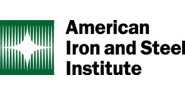Product

January 15, 2021
AISI: Biden Could Finish "Major" Infrastructure Bill This Spring
Written by Michael Cowden
The Biden administration could act fast on a big infrastructure bill if the Senate is quick to approve the president-elect’s Cabinet, the head of the American Iron and Steel Institute (AISI) said.
“By sometime this spring, I think we could have a major infrastructure bill done,” AISI President and Chief Executive Officer Kevin Dempsey said in an exclusive interview with Steel Market Update.
AISI, a lobbying group, represents the interests of U.S. steelmakers.![]()
Time is of the Essence
The House of Representatives will probably be first out of the gate because it passed a $1.5-trillion infrastructure bill in July that should give it head start on the Senate. Why the final figure matters: Every $1 billion spent on infrastructure equates to approximately 50,000 tons of steel demand, Dempsey said.
“I expect that we will see action from the House on an infrastructure bill really quickly – maybe in February,” he said.
The Senate will take longer to act not only because it hasn’t passed its own infrastructure bill yet, but also because it is the Senate’s job to confirm approximately 1,200 presidential appointees, including Biden’s Cabinet.
“We want to get the Cabinet and key sub-Cabinet people in place as soon as we can,” Dempsey said. “Obviously the longer that takes, that delays moving forward at full speed on some of these (infrastructure) issues.”
An evenly divided Senate – 50 members from each party with Vice President-elect Kamala Harris casting any tie-break votes – should not be too big an impediment to action. That’s because the compromise necessary when just one vote can upset an entire bill should ensure that no “extreme proposals” favored by the left wing of the Democratic party make it into law, he said.
Another advantage: “Probably with the Democratic control in the Senate, I think it (an infrastructure bill) will be bigger than it would have been if there had been a Republican lead,” Dempsey said.
The AISI is already in touch with members of the Biden transition team as well as with influential Democrats to make steel’s priorities known. Case in point, AISI has been “working closely” with Representative Conor Lamb, a key Biden surrogate in western Pennsylvania during the presidential campaign and co-chairman of the Congressional Steel Caucus. That’s important because Lamb is “well plugged in with the Biden team,” he said.
Thanks to such allies, the AISI is hopeful the Biden administration will support long-term, steel-intensive projects, including not only highways but also water transmission lines, communications towers, and airports. “There is a lot of steel in all of those things,” Dempsey noted.
Trade, Section 232 and Carbon Policy
AISI has in addition been pleased with key Biden administration appointments on other policy issues, such as Katherine Tai, who has been tapped to be the next United States Trade Representative (USTR). “She knows the issues on trade that are affecting the global steel industry, that are affecting the American steel industry – and so she won’t need any briefing to get up to speed on that,” Dempsey said, noting that Tai is also “tough on China.”
The AISI has long been a critic of what it considers to be excess steelmaking capacity in China. And the group continues to press for Section 232 tariffs and quotas – enacted by the Trump administration but supported by some Democrats – to remain in place as a bulwark against any tide of imports stemming from overproduction in China or elsewhere, Dempsey said.
One example: “The Chinese are now expanding their overcapacity into Southeast Asia, so we have a problem that’s getting worse, not better – and we need to work with the new administration to try to counter that and address that,” he said.
Dempsey pointed to Vietnam, which like China but unlike much of the rest of the world, has significantly increased production even in the face of the Covid-19 pandemic. Also of concern is material from Turkey, South Korea, Russia, Ukraine and, on the stainless side, Indonesia, “where basically they have banned the export of nickel … to subsidize and promote the development of increased production capacity,” much of which is Chinese owned, he said.
Support for Section 232, however, does not mean the AISI would not be amenable in the longer term to something resembling the carbon border tax under consideration in the European Union (EU). “You do need to have a carbon border adjustment to ensure that to the extent there are any new requirements placed on domestic producers … imports need to bear the same burden,” Dempsey said.
Without a border adjustment on carbon, the U.S. might “inadvertently subsidize the import of dirtier steel from other parts of the world.” But carbon policy is unlikely to be taken up by President-elect Biden “right out of the gate” given the need to address more pressing issues such as the Covid-19 crisis, he said.
While the AISI would be willing to work with the Biden administration on an issue that has gained traction in the EU, it does not support removing Section 232 from the continent – something some industry sources see as a potential olive branch that Biden might offer to Europe after it was a target of Trump’s trade wars.
“I do not think it’s a good strategy to go into this and to pull off the tariffs bit by bit from one part of the world or another,” Dempsey said. “Because once you open up any significant area to tariff retreatment, you are going to create an incentive to have steel flood through that hole in our defenses.”
By Michael Cowden, michael@steelmarketupdate.com







